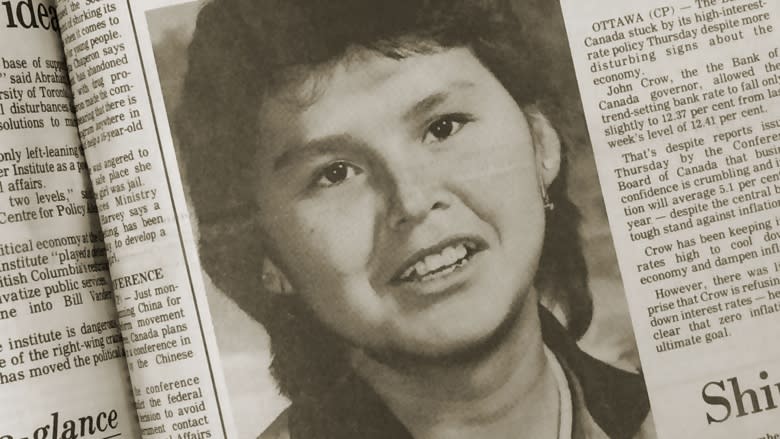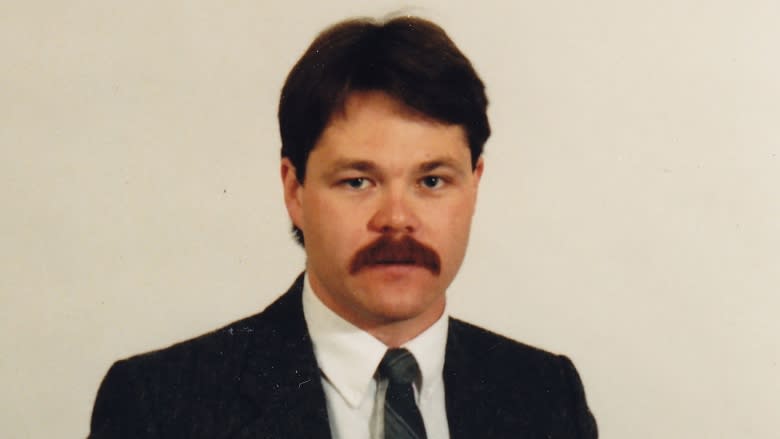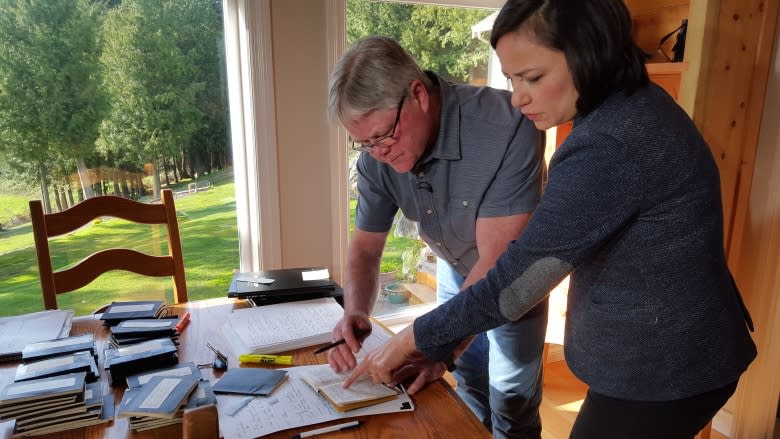CBC podcast uncovers new information in unsolved murder of Alberta Williams
More than 27 years after police "hit a brick wall" in their investigation into the murder of a B.C. woman named Alberta Williams, the RCMP say the case is now "very active" because of new details revealed in a CBC News podcast.
"I can say that because of the podcast, we're getting information," said the RCMP's Wayne Clary, referring to Missing & Murdered: Who Killed Alberta Williams?, an eight-part podcast and online series that launched Oct. 25.
"I would say [the case is] very active right now," Clary said. He refused to elaborate on the new information being pursued and didn't say whether it was information that was broached in the podcast or came directly to the RCMP.
Some of the new details uncovered in the podcast came out through interviews with people who were with Williams on Friday, Aug. 25, 1989, the night she was thought to have disappeared, as well as eyewitnesses who say they saw her the following day.
Previously, the last known sighting of Williams was on the Friday night.
"The media can be so helpful in these old cases," said Clary, who works with the RCMP's E-PANA unit, which was established in 2005 to try to find the person or people responsible for 18 unsolved cases along B.C.'s Highway 16 — the so-called Highway of Tears.
"I would say [the case is] very active right now," Clary said, refusing to elaborate on the new information being pursued.
Williams, a vibrant, 24-year-old Indigenous woman, vanished from Prince Rupert in 1989. Her body was found three weeks later, hidden in a forest along an isolated stretch of Highway 16 in northern B.C.
Tip from retired RCMP investigator
Who Killed Alberta Williams? was sparked by an unprecedented tip from a former RCMP officer who is still haunted by the case, frustrated that police were never able to charge a particular suspect because of a lack of evidence.
Garry Kerr, the RCMP's lead investigator in the Williams case in 1989, said the case hit "a big brick wall."
Last year, Kerr sent an email to CBC News in which he named the person he believes is responsible for her murder.
Following up on Kerr's tip, CBC investigative reporter Connie Walker interviewed dozens of Williams's friends and family members, some of whom had never spoken to police about the circumstances surrounding her disappearance and murder.
Walker was given unprecedented access to the RCMP's initial investigation by way of Kerr's old police notebooks. Kerr retired from the force in 2012.
"It was the right thing to do," said Kerr, who stands by his decision to take the unusual step of publicly revealing so many details about the case.
"Some people have questioned, 'Do you feel it's a betrayal of your time in the RCMP?' And I don't think it is. [The case is] almost three decades old, and from what I knew, there was no active investigation," he said. "I certainly don't believe I've done anything wrong."
Kerr and his former partner, Rick Ross, who has also retired from the RCMP, say there was a "prime suspect" in the case.
Walker tracked down that individual as part of the CBC investigation but also found another potential person of interest.
Police didn't know it at the time, but two people told CBC News they saw Williams with that person the day after her alleged disappearance in 1989.
Little progress for decades
Reliving the memories of Alberta's death has been difficult for Williams's family members, who were frustrated with the lack of progress in finding her killer.
"We didn't hear nothing from RCMP," said Alberta's older brother Francis Williams. "I know they keep saying that even though it's unsolved it's an active case, but five years ago, eight years ago, nobody even contacted our family."
According to Williams's sister Claudia, the RCMP got in touch with her after the CBC podcast launched. She says that the RCMP told her the case is now "at the top of their list" of unsolved cases.
Claudia Williams is puzzled by the history of the investigation.
"It's not like Alberta went on a highway by herself," she said. "She was involved with people, and we knew the people. So, why is it that you know all of a sudden she's on top of the list [of unsolved cases]?"
Even so, Williams is pleased that people are speaking up about what some have called an "open family secret."
She is optimistic that Alberta's murder will be solved.
"I believe we're closer to getting the truth," she said. "There is so much out there. People were hiding behind the walls before and are no longer hiding behind the walls."
To reach the journalists working on this investigation, please contact connie.walker@cbc.ca andmarnie.luke@cbc.ca




